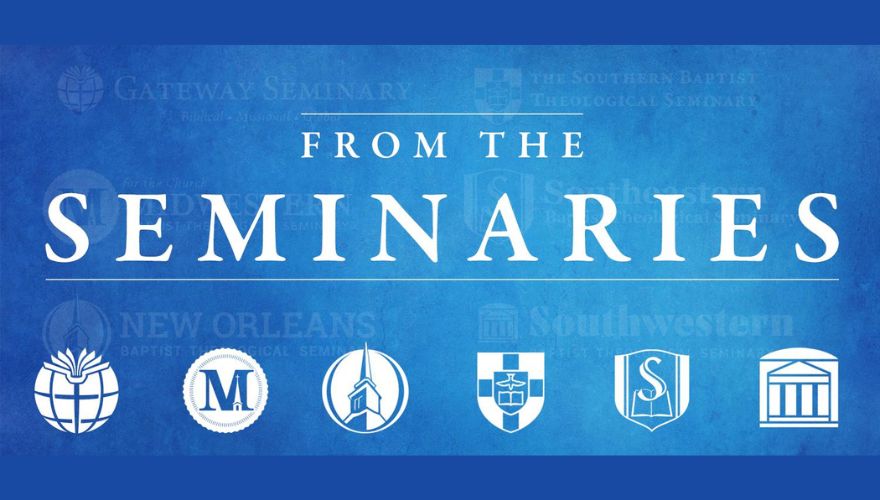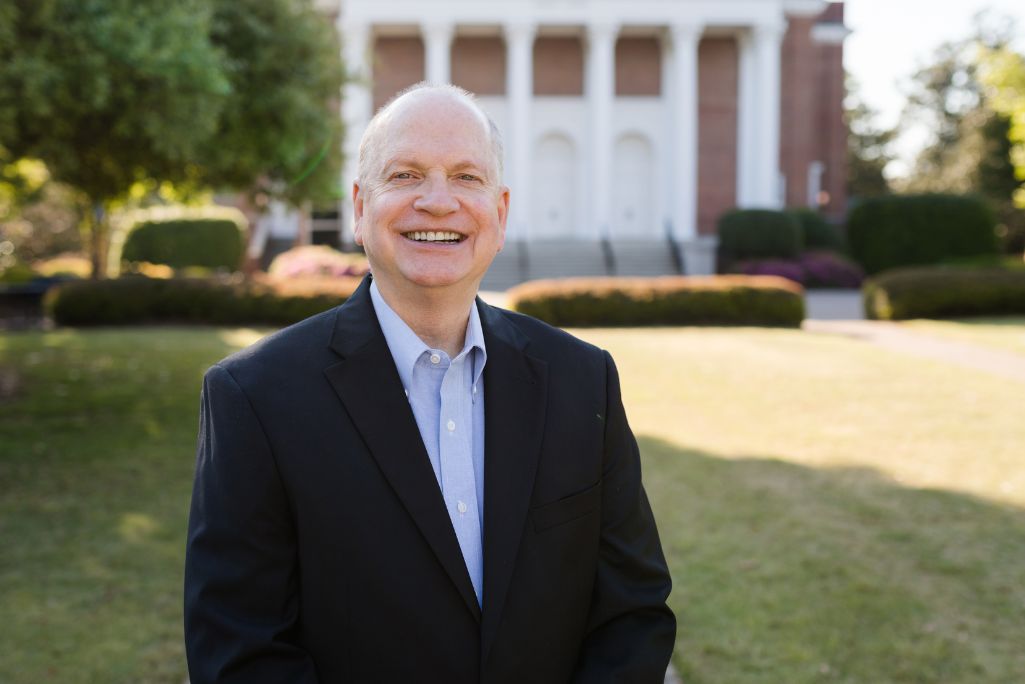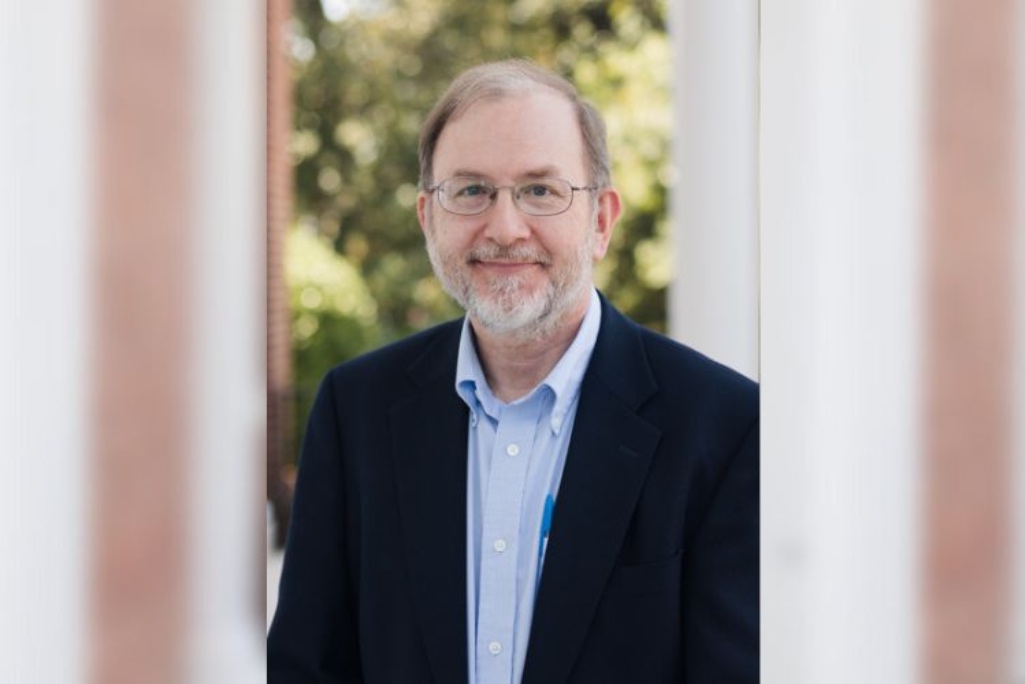
Redeem and Restore 2025: Southeastern hosts new counseling conference
By Mary Asta Mountain, SEBTS
WAKE FOREST, N.C. — On March 21-22 Southeastern Baptist Theological Seminary (SEBTS) hosted its first Redeem and Restore Counseling conference, designed to encourage and equip Christians to counsel with care and to think redemptively about the ministry of counseling. Over the course of three main sessions, over 250 attendees heard from Southeastern counseling faculty Kristin Kellen, Nate Brooks, Brad Hambrick and Sam Williams (retired).
“The Redeem and Restore conference was a wonderful experience,” said Hambrick, assistant professor of biblical counseling. “It provided warm fellowship among like-minded (or aspiring) counselors who want to be missional with the way they engage the mental health profession. The main sessions and breakouts provided attendees with a solid theological foundation, equipping them to serve as salt and light toward those facing significant hardships — whether they, as counselors, serve in local churches or clinical settings.”
The Redeem and Restore conference was designed to further equip students, counselors and church members to minister to those in need by applying biblical truth and wisdom while engaging with the best of clinical insights. Learning alongside current students at Southeastern, attendees experienced for themselves the kind of training that the Southeastern community regularly receives from its counseling faculty.
Between main sessions on Friday and Saturday, the conference featured numerous rotating breakout sessions covering practical topics ranging from confrontation and conflict to grief and trauma as well as worldview in counseling and the counselor’s character.
Kellen, associate professor of biblical counseling, said many attendees “expressed directly to me how thankful they were to learn how to think well about the role of the Bible in addressing life’s struggles, whether in how we assess secular counseling knowledge, who we are as people made in the image of God, or how to apply the Bible to specific issues like marriage or trauma. Several shared that they felt much more equipped to serve in the places God has called them to counsel.”
She added, “I spoke with several attendees who knew nothing about Southeastern before this conference, but they expressed such appreciation for our missional view of counseling ministries. I’m so excited to see what the Lord does with this conference in the years to come.”
In its mission to train students to counsel from a Great Commission perspective, Southeastern offers eight counseling degrees, including a five-year BA to MA program; numerous graduate degrees; doctor of ministry programs; doctor of education programs; and Ph.D. studies. Learn more by visiting sebts.edu/counseling.
Walker delivers Midwestern’s Scudder Lecture on ‘A Public Theology of Free Speech’
By Michaela Classen, MBTS
KANSAS CITY, Mo. — Midwestern Baptist Theological Seminary (MBTS) welcomed Andrew T. Walker to campus on March 25 to deliver the annual Scudder Lecture. Walker, who serves as associate professor of Christian ethics and public theology at Southern Baptist Theological Seminary (SBTS) in Louisville, Ky., presented a Christian theology of free speech.
President Jason Allen expressed his gratitude for Walker, saying, “When we think about these lectureships, we seek to bring someone who will serve this institution well, who resonates theologically with us, who loves the local church and whom we believe we can commend to our campus community wholeheartedly. We’re delighted to once again have such a speaker, Dr. Andrew Walker.”
The Scudder Lecture series brings a guest speaker to campus to explore the biblical basis for dealing with contemporary social challenges and ethical issues. Walker’s lecture explored the biblical grounds for free speech, focusing on the image of God in humanity and humankind’s responsibility to pursue and reflect the truth.
Walker began by noting the relationship between freedom and the image of God. He highlighted the role of human rationality and agency in reflecting the image of God, who formed creation by His words.
“A Christian view of freedom recognizes that certain human choices will align with the order and purpose of God in creation, and that freedom exists precisely for this end,” Walker said. “Speech is a corollary and an outworking of our rationality and agency” with the aim of “bringing order to God’s world.”
Next, Walker dove deeper into the purpose of speech according to Scripture. He noted the numerous biblical commands concerning speech, such as prohibitions on lying and exhortations to speak the truth in love. He also noted the many ways Scripture depicts speech, including its power to build up and tear down, its reflection of a person’s heart and its function in salvation.
“The meta-telos of our speech is the proclamation of the gospel,” Walker said.
He went on to note that while speech is meant to accomplish godly ends, speech is not a good in and of itself. “What we do with our speech constitutes the value of our speech,” he explained, adding, “While freedom of speech in our context means liberty to engage in any type of speech that the agent wants to engage in, that is far from the worldview of the Bible, where truth and virtue condition our speech toward the highest virtue, which is love.”
Third, Walker explored the government’s relationship to speech. Citing Romans 13:1-7 and 1 Peter 2:13-17, he addressed the government’s purpose to bring order, punish evil and protect good.
After noting that the Bible limits government’s authority, he added, “A surface level reading of Scripture would indicate that God gives no explicit, direct authority to the government over humankind’s speech.” In light of this, Walker pointed out the difficulty of determining “how exactly speech and public order rise to the level of government intervention.”
To watch this year’s Scudder Lecture, click here.


